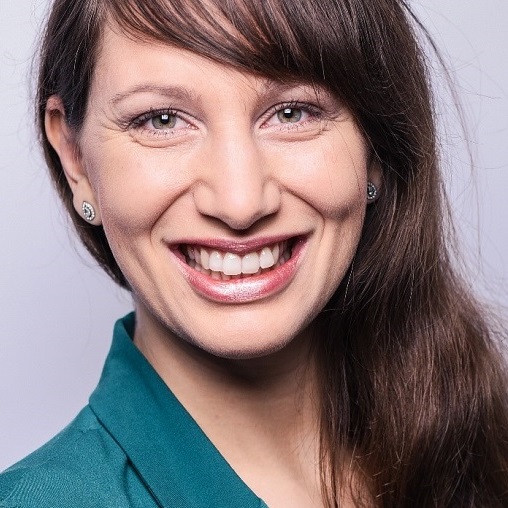Visual Analytics
Visual analytics is an interdisciplinary field that combines data visualization, analytical techniques, and interactive interfaces to help people make sense of complex and often large datasets.
Process Mining
Process Mining is a data-driven discipline that focuses on extracting valuable insights and knowledge from the vast amount of event data generated within organizations.
Important Dates
- Deadline for submission: June 13th, 2025
- Notification of acceptance: July 10th, 2025
- Camera ready-papers: July 18th, 2025
- Vipra 2025 Workshop:
September 1st, 2025
Call For Papers
We encourage submissions from all areas on the intersection of visual analytics and process mining.
The 2025 Workshop on Visual Process Analytics (Vipra 2025) is the 2nd annual workshop that provides an opportunity for participants to discuss state-of-the-art event visualization and process mining and learn how both techniques can mutually benefit each other. In this workshop we aim to bring together researchers from both Visual Analytics and Process Mining, to learn, create a common language, spark collaborations, and advance both fields.
Process Mining is a data-driven discipline that focuses on extracting valuable insights and knowledge from the vast amount of event data generated within organizations. It involves the discovery, analysis, and improvement of process models by leveraging techniques from data science, machine learning, and data analytics. By examining event logs and historical data, process mining aims to provide a clear, objective view of how processes actually operate, identifying bottlenecks, deviations, and opportunities for optimization. In turn, this supports organizations in making more data-informed decisions, and enhance operational efficiency.
Visual analytics is an interdisciplinary field that combines data visualization, analytical techniques, and interactive interfaces to help people make sense of complex and often large datasets. It focuses on using the power of visual representations to facilitate data exploration, pattern recognition, and decision-making. By enabling users to interact with data through graphical interfaces, visual analytics promotes a deeper understanding of information, uncovers hidden insights, and supports the detection of trends, anomalies, and relationships that might be challenging to discern through traditional data analysis methods alone.
We believe that process mining and visual analytics can mutually benefit each other. Until now, there has been limited interaction between the two fields, despite their shared objectives. In process mining, the emphasis has traditionally been on data extraction and process discovery, often neglecting the visualization aspect, whereas in visual analytics, event visualization efforts have often overlooked the wealth of process mining techniques that can enhance visualizations and analysis. Bridging this gap and fostering collaboration between the two fields will not only lead to more informed, efficient, and data-driven improvements in various domains but also advance the research and innovation in both process mining and visual analytics, ultimately contributing to a more holistic and integrated approach to understanding and optimizing complex processes.
Workshop topics include, but are not limited to:
- VA to support exploration and comparison of discovered process models
- VA to support the comparison of event logs and process models, e.g., in conformance checking
- VA to support the generation of hypotheses about the business process and the identification of process improvement ideas
- VA to represent temporal and spatial uncertainty in PM models
- Research challenges, pitfalls, and opportunities related to the intersection of VA and PM
- The role of AI in PM, and how Visualization and explainable-AI solutions can support model comprehension, exploration, and refinement
- Research on the use of VA in BPM and PM practice (user studies, task taxonomies, etc.)
For Submitters
Looking to Submit your work at VIPRA? Here you will find all the information you need.
Paper Format, Publication, and Submission Guidelines
We will accept short papers with up to 8 pages and regular papers with up to 15 pages. We encourage a diverse range of submissions and topics in any of the paper types listed below:
- Regular papers (LNBIP, 12-15 pages)
- Short papers (LNBIP, 6-8 pages)
Selected accepted papers will be included in the conference proceedings and assigned a DOI as fully citable publications.
All submission must comply with the Springer LNCS formatting guidelines.
Selected accepted regular and short papers will be published by Springer as a post-workshop proceedings volume in the series Lecture Notes in Business Information Processing (LNBIP). At least one author of each accepted paper must register and participate in the workshop.
Contact vipra.workshop [at] gmail.com if you have any questions.
Important Dates
All submission deadlines are at 23:59 GMT on the date indicated.
- Deadline for submission: June 6th, 2025
- Notification of acceptance: July 3rd, 2025
- Camera ready-paper: July 11th, 2025
- Vipra 2025 Workshop: September 1st, 2025 (in conjunction with BPM 2025)
Program
VIPRA will take place on September 1st co-located with the BPM conference. Presentations, interactive sessions, and a keynote speaker are programmed to be included.
International Program Committee
Names and affiliations of the workshop program committee. TBD
Organizing Committee
The people behind VIPRA organization.

Jana-Rebecca Rehse
Junior Prof. at Univ. of Mannheim

Francesca Zerbato
Asst. Prof. at TU Eindhoven

Luise Pufahl
Prof. at Univ. of München

Stef van den Elzen
Asst. Prof. at TU Eindhoven

Alessio Arleo
Asst. Prof. at TU Eindhoven
